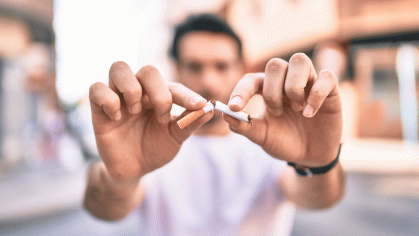Medical Cannabis use is increasingly popular … but are there risks? A new Rutgers Health study intends to find out
Emphasis on Cannabis Use Disorder, which involves tolerance and dependence
With medical cannabis use becoming more widely accepted, Rutgers Health researchers are studying its potential physical and mental health effects on patients.
The goal of the five-year study, which is funded with a $686,376 grant from the National Institute on Drug Abuse, is to study the potential therapeutic benefits of medical cannabis, as well as side effects and possible harms to health. Researchers will examine risk for cannabis use disorder, or CUD, a complex condition involving a problematic pattern of cannabis use. Previous research indicates that after using medical cannabis for three months, nearly 20% of people will develop CUD, including increased tolerance and dependence.
“There’s been a rapid expansion of medical cannabis use, but we lack clarity related to potential risks,” said Tammy Chung, the project’s lead researcher and psychiatry professor within the Rutgers Institute for Health, Health Care Policy and Aging Research. “For example, should our criteria for assessing cannabis use disorder be the same for therapeutic and recreational users? And what type of guidelines should we apply for individuals using cannabis both recreationally and for therapeutic reasons? There are gaps in our knowledge, and the answers are important to informing health care decisions.”
While there are a range of CUD symptoms, including paranoia and memory loss, the most immediate concern is steadily escalating tolerance – which can result in rising costs and increased consumption. And with tolerance often comes dependence.
“It’s important to note that not all patients using medical cannabis develop CUD,” Chung said. “But some do, and right now we can’t be sure who’s at risk. To provide the best support, we need to learn more about all relevant factors. The more we understand, the more effective our counseling resources can be.”
Participants in the Rutgers Health study must meet New Jersey’s qualifications for legal cannabis use and have a valid New Jersey medicinal cannabis program card authorizing therapeutic use.



